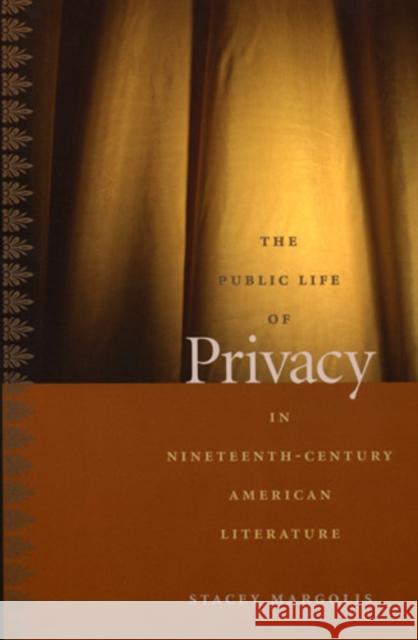The Public Life of Privacy in Nineteenth-Century American Literature » książka
The Public Life of Privacy in Nineteenth-Century American Literature
ISBN-13: 9780822335498 / Angielski / Miękka / 2005 / 248 str.
The Public Life of Privacy in Nineteenth-Century American Literature
ISBN-13: 9780822335498 / Angielski / Miękka / 2005 / 248 str.
(netto: 112,59 VAT: 5%)
Najniższa cena z 30 dni: 104,06
ok. 22 dni roboczych.
Darmowa dostawa!
Stacey Margolis rethinks a key chapter in American literary history, challenging the idea that nineteenth-century American culture was dominated by an ideology of privacy that defined subjects in terms of their intentions and desires. She reveals how writers from Nathaniel Hawthorne to Henry James depicted a world in which characters could only be understood--and, more importantly, could only understand themselves--through their public actions. She argues that the social issues that nineteenth-century novelists analyzed--including race, sexuality, the market, and the law--formed integral parts of a broader cultural shift toward understanding individuals not according to their feelings, desires, or intentions, but rather in light of the various inevitable traces they left on the world.
Margolis provides readings of fiction by Hawthorne and James as well as Susan Warner, Mark Twain, Charles Chesnutt, and Pauline Hopkins. In these writers' works, she traces a distinctive novelistic tradition that viewed social developments--such as changes in political partisanship and childhood education and the rise of new politico-legal forms like negligence law--as means for understanding how individuals were shaped by their interactions with society. "The Public Life of Privacy in Nineteenth-Century American Literature" adds a new level of complexity to understandings of nineteenth-century American culture by illuminating a literary tradition full of accidents, mistakes, and unintended consequences--one in which feelings and desires were often overshadowed by all that was external to the self.











